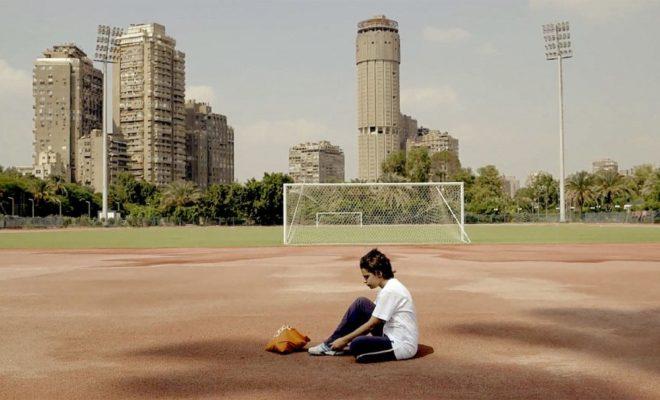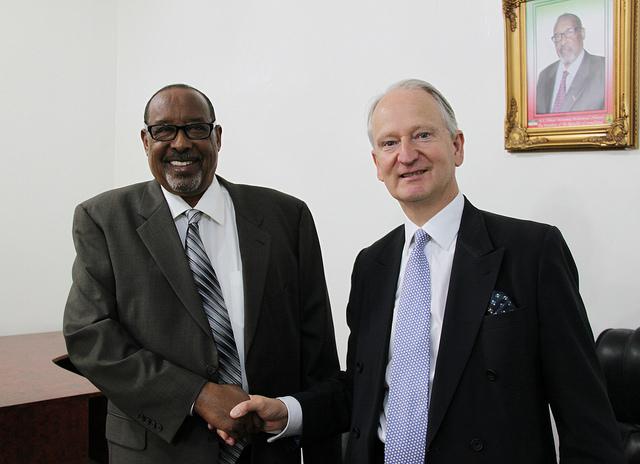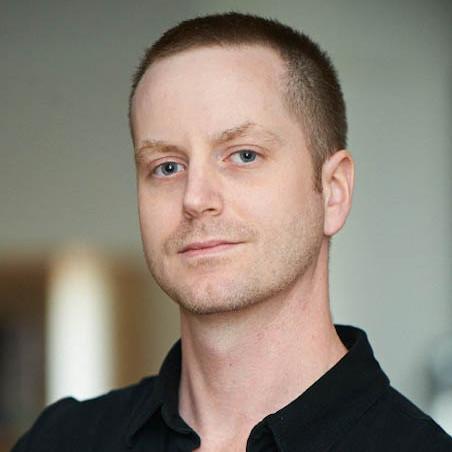Amazing African documentaries you’re gonna wanna see

Over the last year or so, there have been several incredible documentaries made in Africa. With some help from Film Africa, we picked out some of the most beautiful, hard-hitting and eye-opening among them. We then got a diverse range of reviewers to check them out and respond.
The films come from across the continent and are all moving and remarkable in their own, often very different, ways.
- Amal (Egypt) – Review by Sally Zohney.
- Deltas, Back to Shores (Senegal/Morocco) – Review by James Wan.
- Lost Warrior (Somalia) – Review by Adam Matan.
- Boxing Libreville (Gabon) – Review by Oumar Ba.
- Uncertain Futures (Burundi) – Review by Ketty Nivyabandi.
Amal
Director: Mohamed Siam
Review by Sally Zohney (@sallyzohney), activist, researcher and storyteller based in Cairo, Egypt:
“I would advise you to watch Amal with an open mind, free from expectations. This story is not just of the classic inspirational teenager who goes against the odds. It is also about the true, raw reality of a teenager’s life during the 2011 Egyptian revolution. Amal might seem an average teen, one of the many thousands who joined the huge numbers on the streets. But her journey reveals more about this young, fierce, angry fighter.
The documentary offers a different lens on the Egyptian revolution, a more difficult and complex one that allows the viewer to see those historic events through the eyes of a teenage girl who dedicates five years of her life to a dream…a dream that remains unaccomplished.
From the first five minutes, you see how Amal rebels against all stereotypes. Against her age, her family, her background, but mostly her gender. By identifying as a tomboy, she finds comfort and is able to blend in with fellow revolutionary male friends and actively take part in the protests. This story raises several questions. How does Amal’s experience fit with the feminist discourse of the revolution and the rise of women’s voices in the streets? Was that narrative not inclusive of Amal and her peers? Or is Amal an exceptional case among the many young women who felt equal to men during the protests?
Watching the life of Amal unfold, it’s impossible not to feel inspired by a young woman who survives bullets, tear gas and mass arrests. At the same time, it’s difficult not to see a child who wants to have fun and pass her exams. This documentary beautifully captures both of these sides and leaves you wanting even more. It also leaves you angry that young people like Amal had to go through these life-changing events at such early age.
Amal is a brave invitation to re-think how the revolution changed the lives of millions of Egyptians, especially those younger generations that will shape the future. Can there be hope if we do not address the anger, the deep wounds, and the experiences of Amal’s generation?”
Amal is screening in London as part of Film Africa on Sunday 4 November.
Deltas, Back to Shores
Director: Charlie Petersmann
Review by James Wan (@jamesjwan), editor of African Arguments:
“It’s difficult to explain why Deltas, Back to Shores is quite so gripping. After all, there’s little obvious drama in this understated documentary about two people’s migration stories. Things do happen. The characters’ lives do change. But most of the film is of people talking, and pausing, and thinking, and deciding.
On one side of the Mediterranean, Ibrahima, a soft-spoken young Senegalese man living illegally in Tangiers, is thinking and deciding whether to cross the choppy seas to Europe. He befriends some fishermen who warn him of the dangers. “Migrants constantly disappear here,” says one matter-of-factly. He meets some others who persuade him to take the risk. “Some people die on earth, others die in the sea,” a fellow migrant tells him slumped on the floor of an unfurnished room, “but there’s nothing here, brother.”
On the other side of the Mediterranean, Agostinho, our other protagonist, also spends a lot of time talking and pausing. A fisherman for 40 years, he is reluctant to leave Portugal for the Netherlands. He can barely catch any fish to make a living these days. He has extensive family in the Netherlands who plead with him to join them. And he has a construction job waiting for him. But he is also reluctant to go despite knowing the writing is on the wall. “I’m not ready”, he tells frustrated family members with his words, gestures and actions over and again.
Deltas, Back to Shores is slow, quiet and understated. In theory, it shouldn’t be edge-of-the-seat viewing. But there’s something irrepressibly captivating, as well as agonising, about watching people make impossibly tough decisions in what feels like real time.
The film is not perfect. Some odd editing and directorial decisions, particularly towards the end, take the viewer out of the moment at times. But at its best, it does an amazing job of simply allowing the viewer to sit and listen with Ibrahima, Agostinho and those they meet along the way.
In its small but beautiful way, the film is a moving reminder that underpinning the mass flows of people around the world are millions of careful, if painful, decisions made in all their wrought, imperfect hopefulness.”
Deltas, Back to Shores is screening in London as part of Film Africa on 7 and 8 November.
Lost Warrior
Directors: Nasib Farah, Søren Steen Jespersen
Review by Adam Matan (@adammatan), managing director of the Anti-Tribalism Network, a non-profit tackling tribalism in Somalia:
“Lost Warrior captures the story of a young couple with two unique stories. The film puts these compelling characters at its very centre, but it is about more than them. It is also about radicalisation, the challenges immigrant communities face, and transnational politics.
One of the protagonists is Mohammed, a young man in hiding from al-Shabaab in Mogadishu. He was born in Somalia, but left aged three during the civil war and arrived in the UK aged eight. As a teen, he got caught up in criminal activity and served two years in prison. On his release, the UK government deported him back to Somalia. He never completed his naturalisation process to become officially British.
Back in Mogadishu, Mohammed was groomed by al-Shabaab. The Islamist militant group has a strategy of trying to recruit young Somalis from the diaspora and is often successful among the most vulnerable such as those deported under the UK’s misguided policies. Mohammed abandoned the group though after realising the reality of their bloodthirsty campaign.
The other character we meet is Fathi, Mohammed’s wife. She is a teenage Somali-British citizen. She is in the UK, though she was taken back to Somalia by her parents at one point because they were unhappy with her rebellious behaviour and Westernised attitude. Fathi is looking after her and Mohammed’s young son and trying to make sense of life as a lone parent, with her husband in a different continent.
Lost Warrior is an amazing film, full of twists and emotions. It is about love, anger, trauma, uncertainty and the struggle for a better life. It gives a full and dynamic picture of the complex lives of Mohammed and Fathi, and, with impressive access, delves deep into Somali households. An emotional film to watch, it will make you marvel at the resilience of people in standing up to impossible challenges and fighting for their lives. I sometimes still wonder what the future holds for Mohammed and Fathi.”
Lost Warrior is screening in London as part of Film Africa on 8 November.
Boxing Libreville
Director: Amédée Pacôme Nkoulou
Review by Oumar Ba (@oumarkba), assistant professor of political science at Morehouse College:
“Boxing Libreville is not a film about boxing. It’s a film about the life and struggles of a boxer. Better yet, it’s a film about the life and struggles of a nation.
Christ Olsen Mickala is a professional Gabonese boxer who trains during by day and works as a bouncer by night. He is, in his own words, “the handsomest boxer ever”, pursuing his passion and making sure he is “hitting steadily” in both the ring and in life. His coach vows to make him the champion of not only of Gabon, but Africa. But Christ is struggling to make ends meet. He is only still boxing out of love and hoping that maybe someday it will all pay off.
The backdrop to Christ’s story is Gabon’s neck-and-neck 2016 presidential elections. The film is interwoven with tense moments of political uncertainly and electoral violence. President Ali Bongo is running for a second term following his controversial election seven years earlier. This time, the challenger Jean Ping has a strong chance at ending the Bongo dynasty. But is Bongo willing to walk away when defeated? Probably not, especially given that his campaign slogan is ‘Let’s Change. Together.’
In the midst of dropping oil prices, Christ and his team struggle to find running water to shower after training. They shower in the street instead, under the rain, joyful as small children. The film is filled with tender moments such as these, bringing a balance to tensions that at one point spill over with buildings being set ablaze in angry riots.
Boxing Libreville offers a measured glimpse into Libreville’s urban life, capturing intimate and moving moments amidst the frenetic rhythm so familiar in major cities across the continent. It often feels like watching earnestly-captured home-made videos. It is definitely worth watching.”
Boxing Libreville is screening in London as part of Film Africa on 5 November.
Uncertain Future
Director: Eddy Munyaneza
Review by Ketty Nivyabandi (@kettynivyabandi), poet and activist from Burundi:
“I had heard of this documentary several times before getting the change to watch it. Imagine my surprise then, seeing myself on screen a few minutes into the film. The scene is from 13 May 2015 and takes place on the streets Bujumbura where hundreds of women had gathered in resistance to what has since become one of Africa’s fiercest political crises.
In Uncertain Future, Burundian filmmaker Eddy Munyaneza intimately chronicles the citizen-led uprising in May 2015 and the troubled months and years that followed. Unlike most journalistic accounts of the crisis, Munyaneza turns the camera on himself as he navigates through the smoke of tear gas, police shootings, and a nation’s burning hopes. The documentary, which unfolds as personal diary, is a compelling 75-min-long question mark on Burundi’s past, current and future wounds. Opening scenes capture the early days of the street uprising, but as the repression grows, Munyaneza is unexpectedly caught in the unfolding turmoil as his own family disappears.
The film follows him on his journey into exile and then back home again as he takes some brave and risky steps inside Burundi at its most perilous time. Filled with rare scenes of life post-2015, including deeply personal interviews with fellow journalists and friends, Uncertain Future is a poignant close-up into what conflict does to a person, a family, a nation.
Munyaneza’s search for his family evolves into a metaphor for his own country, and his quest for answers takes him deep into the countryside where the past weaves into the present, where Burundi’s rich heritage still drums between the sounds of bullets.
Uncertain Future paints Burundi’s pain and beauty with equal acuity and ease. It is a remarkable window into a hurting nation. It is unsurprising that it has received critical acclaim and just won the 2018 African Movie Academy Award for Best Documentary Film.”
Uncertain Future is screening in London as part of Film Africa on 5 November.






